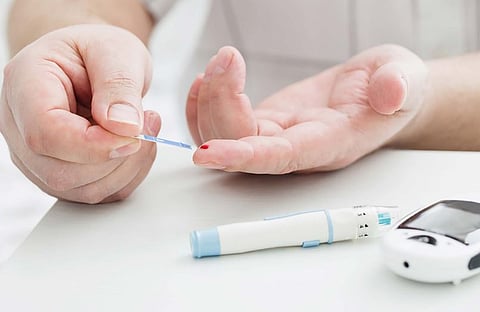
- Home
- Live Blog
- Breaking News
- Top Headlines
- Cities
- NE News
- Sentinel Media
- Sports
- Education
- Jobs

New York: In a first, researchers have found that a treatment affecting the immune system effectively slowed the progression to clinical Type-1 diabetes in high risk individuals by two years or more.
The study, involving treatment with an anti-CD3 monoclonal antibody (teplizumab), was conducted by Type 1 Diabetes TrialNet, an international collaboration aimed at discovering ways to delay or prevent Type-1 diabetes. Researchers enrolled 76 participants aged 8-49 years who were relatives of people with Type-1 diabetes, had at least two types of diabetes-related autoantibodies (proteins made by the immune system), and abnormal glucose (sugar) tolerance. Participants were randomly assigned to either the treatment group, which received a 14-day course of teplizumab, or the control group, which received a placebo.
All participants received glucose tolerance tests regularly until the study was completed, or until they developed clinical Type-1 diabetes - whichever came first. During the trial, 72 per cent of the people in the control group developed clinical diabetes, compared to only 43 per cent of the teplizumab group. The median time for people in the control group to develop clinical diabetes was just over 24 months, while those who developed clinical diabetes in the treatment group had a median time of 48 months before progressing to diagnosis.
Type-1 diabetes develops when the immune system’s T cells mistakenly destroy the body’s own insulin-producing beta cells. Teplizumab targets T cells to lessen the destruction of beta cells. (IANS)
Also Read: INTERNATIONAL